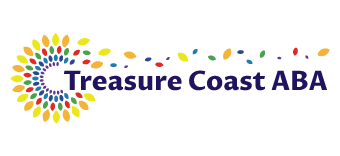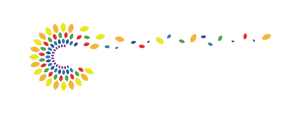Services
Thank you for your interest in TCABA. We are child-centered, working with children from birth to 21 yrs of age who are affected by autism and other related behavioral challenges. We work with children with dual or multiple diagnoses on behaviors, gross and fine motor skills, language development, physical challenges, and socialization. Although we provide services for individuals with developmental disabilities, we do not diagnose them. A diagnosis must come from a doctor who specializes in developmental disabilities. We do provide evaluations and assessments, but typically once the individual already has a diagnosis. These evaluations are used to determine functioning, behaviors of concern, and such, which are then submitted to insurance for authorization purposes.
What is ABA?
Applied Behavior Analysis (ABA) is a therapy based on the science of learning and behavior.
What does ABA help us understand?
- How behavior works.
- How behavior is affected by the environment.
- How learning takes place.
How does ABA therapy work?
- Can be adapted to meet the needs of each unique person
- Provided in many different locations – at home, at school, and in the community
- Teaches skills that are useful in everyday life
- Can involve one-to-one teaching or group instruction
How can ABA therapy programs help?
- Increase language and communication skills.
- Improve attention, focus, social skills, memory, and academics.
- Decrease problem behaviors.
The Process
Our intake involves getting to know you and your child. TCABA likes to begin this process with an informal meeting where we share our philosophy and methods. We like to meet with families to make sure that our team is a good match for your needs. Once this is determined, we then like to begin discussing your family’s goals, dynamics, and routines. You will complete the Intake form via a link we will send you. The TCABA Administrative Team is always happy to help you navigate your way through our intake process.
From there, we will review and submit your information to the insurance portal to request authorization for services. Please be sure to include/attach all evaluations or assessments you may have for your child so that we may have a better understanding of their needs for services. Once the initial assessment is approved by the insurance, an analyst will reach out to you to discuss services, set up an interview, and schedule a time to meet up to assess your kiddo. This may need to be completed in more than just one meeting; typically 2 or 3.
Once the assessment is completed, the BCBA will create a behavior plan which will again be submitted to the insurance portal. Here, they will grant us a set number of weekly units or hours to conduct ABA services. The number of hours is dependent on the severity of the behaviors. ABA is a much more intensive form of therapy, unlike that of speech or occupational therapy with which you may be more familiar. Where they may benefit from about 2 or so hours a week, ABA may require anywhere between 10-15 hours for less severe cases, to up to 25-30 hours a week for more special cases.
After you are approved for services, our team will then match your little one with a behavior therapist, or RBT, not only based on availability for a requested time frame but even their experience and personality as well. ABA therapy may be conducted wherever it is needed, such as in-home, center, daycare, school, and in the community, and is often pretty flexible if things may change. Just be certain to discuss changes or concerns with your analyst prior.
A majority of insurance companies grant 6-month authorizations; very few will grant for 3 months or up to a year/year and a half. Once the authorization is coming to an end, the Analysts conduct a reassessment, where they will review the graphs and data collected, determine which interventions have been successful – which goals will need to be continued, tweaked, or mastered – and which have not been successful, and update the behavior plan.
A child may “graduate” in just a few short months, depending on the need for services, or in most cases, a few years, as goals or interventions are added, adjusted, or mastered. Once a child shows that they have mastered goals at 80% to 90% and have generalized across settings and people, showing they can perform or execute the new behavior independently, the hours needed for the amount of ABA needed will gradually decrease until proven they are ready to graduate out of ABA.
Support
Parent/Caregiver Expectations
Parents or caregivers are expected to be present during sessions. Present typically means within sight and sound of the child always. You will be asked to engage during sessions, including role-playing, take data, accepting direction from your Behavior Analyst and Tech, and participate in direct intervention. This model varies from the typical speech, OT, and PT pull-out model. ABA is an active engagement intervention.
Staff Expectations
Our team is dedicated to help implement and support your child’s ABA goals. We believe that therapy does not always have to occur within a clinical or home setting. We provide services wherever your child may need support to ensure the generalization of skills. This might take place during extra-curricular activities, peer group activities, weddings, church services, school, the zoo, the movie theatre, the grocery store, etc.
Our team also provides support for doctor’s appointments, psychological testing, IEP meetings, etc. We are dedicated to help improve our clients and their family’s quality of life. TCABA loves to collaborate with other therapist such as, Occupational Therapy, Physical Therapy, Speech Therapy, or any other therapies that your child may receive.
We believe that we should meet with everyone on your child’s team, to review data, make program adjustments as needed, and address other team questions/concerns.
Tiered Service Delivery Model
The tiered service delivery model is a standard part of Applied Behavior Analysis. The Behavior Analyst Certification Board, or BACB, has guidelines that govern the practice of ABA and the field as a science. These guidelines are implemented to ensure that all who benefit from ABA do so to the highest standard. As such, the BACB regulates the service delivery model to assure every client is getting the most up-to-date, scientifically proven treatment.
A BCBA or BCBA-D have graduate-level experience in the field of ABA, have taken the certification exam, and are expected to complete continuing education credits in the field. They are trusted to oversee the entire program for each client they take on: they guide the treatment plan and make sure it is the most effective in accordance with all scientific data.
A BCaBA, like a BCBA or BCBA-D, are also allowed to create treatment plans. They have collegiate-level training in a field like Psychology and have also taken a certification exam. They are directly supervised by BCBA or BCBA-D who ultimately has the final say, but BCaBAs are capable and qualified to create and supervise treatment plans for clients.
Lead therapists in the field have significant experience but do not have the certifications or education requirements to be a BCBA. Oftentimes, lead therapists are in school to continue a career in the field of ABA. They oversee the implementation of the program and are the consultant’s right hand.
Behavior Technicians, are trained to implement the program and treatment plan that the BCBA or BCaBA creates. They are qualified–soon to be nationally by a competency exam created by the BACB itself–in the areas necessary to practice ABA, including direct treatment, ethical issues, and everything in between.
The tiered service delivery model is effective by providing every client a qualified treatment plan and cost-effective resources to implement it. Behavior technicians implement the program and recommendations that the BCBAs provide them.
Treasure Coast ABA Services would like to thank you for giving us an opportunity to work with your family. We look forward to working with you and truly hope to help improve the quality of life for your child and your family.

